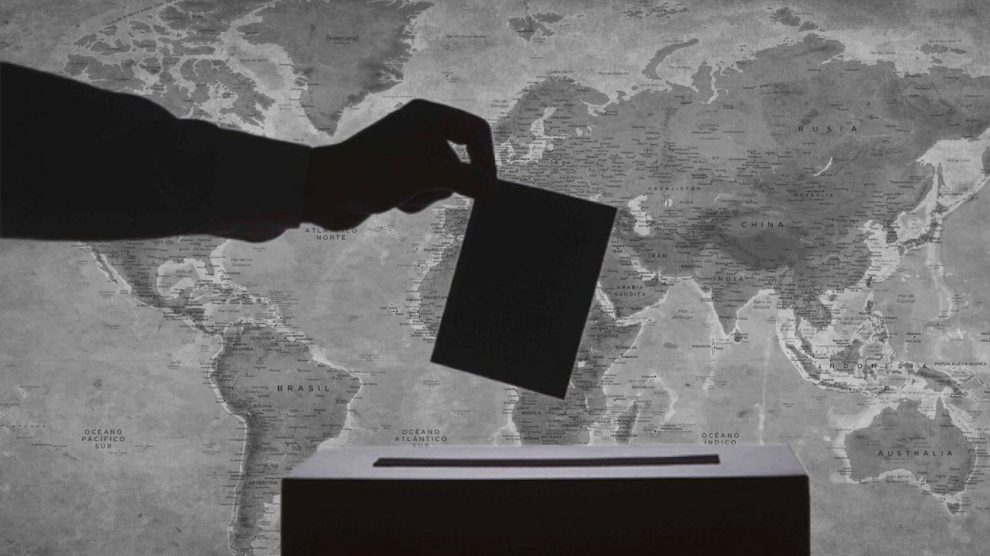Let’s talk foreign policy. On Tuesday, politicians from Italy’s major parties gathered at the Italian Institute for International Affairs (IAI) in Rome. There, Director Nathalie Tocci moderated a panel aimed at comparing their foreign policy positions, as Italians head towards elections on September 25.
- Representing the parties were General Vincenzo Camporini (Azione–Italia Viva), Fabio Castaldo (Five Stars Movement), Ylenja Lucaselli (Brothers of Italy), Lia Quartapelle (Democratic Party) and Valentino Valentini (Forza Italia).
Ukraine. Substantial unity across the board. Nearly all panellists vowed to continue supporting sanctions on Moscow, send more weapons to Kyiv, and refrain from demanding President Volodymyr Zelensky to accept a compromise with Russia in the event of a negotiation.
- The only exception was Mr Castaldo (5SM), who neither supported nor refused backing continued military aid.
European Union. All spoke in favour of strengthening the EU’s institutions and integration although with slightly different recipes. Right to left:
- Ms Lucaselli (BoI) mentioned the defence of Italy’s interest as a driving factor in her party’s approach to the bloc, in accordance with common policies on defence, energy, and fiscality.
- Mr Valentini (FI) deemed it necessary to review the EU’s fiscal pact and avoid an energy-triggered financial crisis, adding that bank integration must be completed.
- Mr Camporini (A/IV) noted that strengthening Italy’s role in the EU, and the EU’s integration and consistency, is necessary to gain more influence and be more proactive within the Atlantic Alliance.
- Ms Quartapelle (DP) said that only a stronger, more integrated and united Europe can better tackle Russia’s aggression and increase its support to Ukraine.
- Mr Castaldo (5SM) insisted on striving towards a federalist Europe and making common debt issuance a permanent feature of the Union.
EU common defence and NATO. All supported Italy’s anchorage to the Alliance. When engaged by Ms Tocci, General Camporini argued that the ongoing international crisis can be an opportunity to discuss the matter, so as to strengthen the EU’s influence and contribution to the Atlantic Alliance and act as a reinforcement to the bloc’s foreign policy.
- He noted that the European Defence Fund’s resources were almost “symbolic” – seven billion euros over seven years – and that intra-EU defence cooperation must be enhanced and streamlined, including through the standardisation of defence systems to avoid needless duplication.
China. Again, all essentially agreed on how Italy must position itself with regards to Beijing – within the democratic front against autocracies – and all identified China as the linchpin of the “systemic challenge” the West must face.
- For his part, Mr Castaldo rejected the idea of an “opposing blocs” scenario in favour of a “selective engagement” approach.
- He also touched upon his party’s role in the 2019 Memorandum of Understanding (through which the 5SM-controlled government signed Italy’s way into the Belt and Road Initiative) arguing it was a way of correcting the trade imbalance with China and catching up with France and Germany.
- The general consensus was that the Chinese challenge must be countered through a stronger and more united EU, including on the global stage, where Beijing – recalled Mr Valentini – embeds debt traps in its dealmaking.
- Mr Camporini called on all of Europe to fight Chinese economic influence in Africa by offering better, coercion-free terms, especially on critical supply chains to protect the EU’s strategic interests.
- Ms Quartapelle stressed the need to protect Italy’s and the EU’s critical infrastructure and strategic assets from forein interference and takeovers, including through investment screening.





